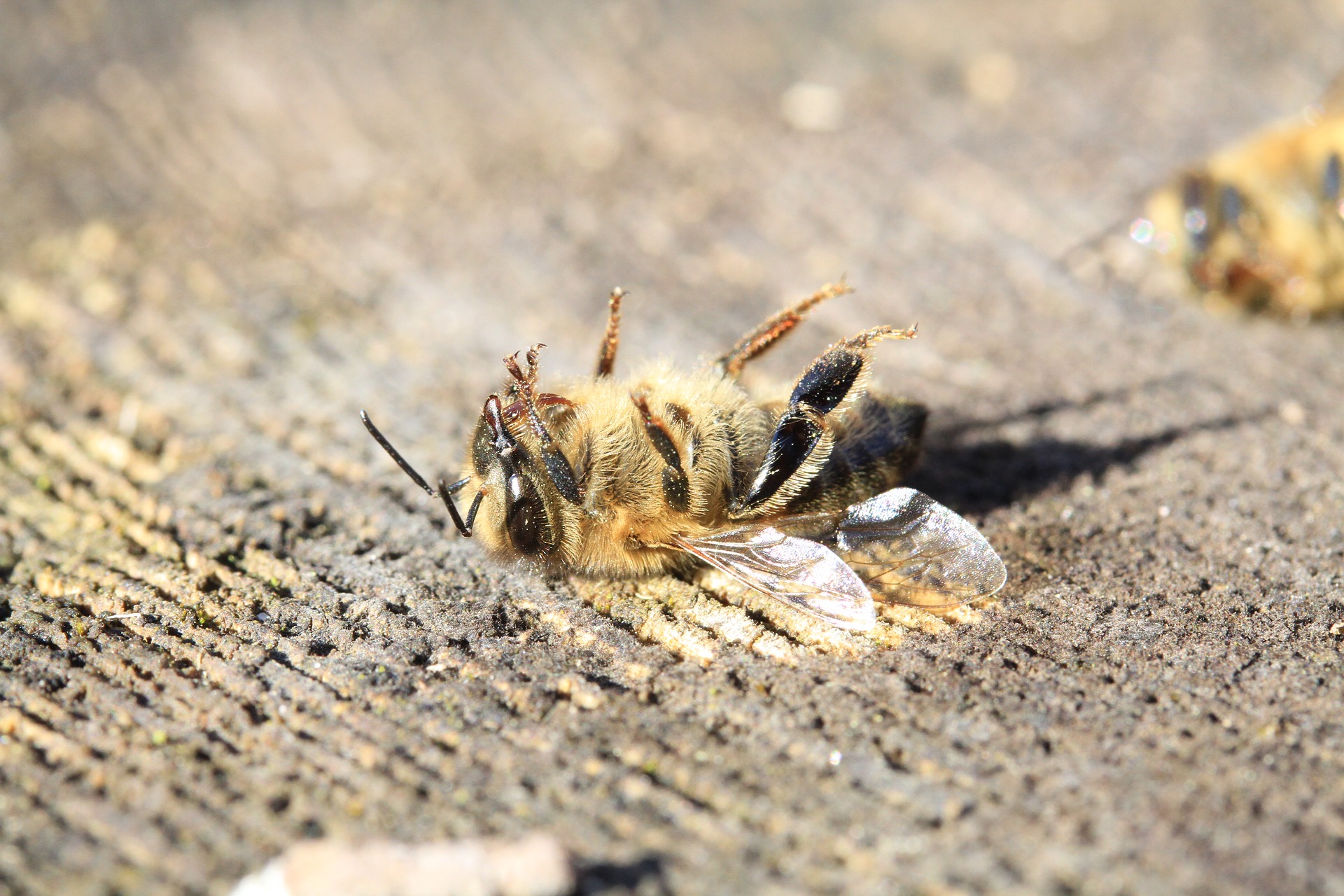- Blog
- Food & Agriculture
- Bee Action
- Why are bees dying? Pollinators need your help before it’s too late
Why are bees dying? Pollinators need your help before it’s too late

Donate Now!
Your contribution will benefit Friends of the Earth.
Stay Informed
Thanks for your interest in Friends of the Earth. You can find information about us and get in touch the following ways:
The latest numbers for the annual honeybee count are in, and the situation is dire. Bee population decline is happening across the country. Beekeepers reported losing 45% of their bee colonies overall.
And honeybees aren’t the only pollinators in trouble. 40% of all wild invertebrate pollinators face extinction. If we lose our pollinators, it would cause serious ecological harm.
We can’t let it come to that.
Why are bees dying off?
The question remains — why are the number of bees declining? While this question leaves many scratching their head, Friends of the Earth knows none of this is happening by accident.
Big Agriculture and the fossil fuel industry are knowingly fueling this mass extinction by driving rampant pesticide use, habitat loss, and climate devastation. The government is adding fuel to the fire, often working hand-in-hand with these industries to dismantle environmental regulations while finding new ways to line the pockets of the corporations responsible.
To add insult to injury, the Trump administration used the coronavirus pandemic as an excuse to roll back even more protections, greenlight more destructive projects, and increase payouts to the mega-corporations fueling these crises.
We know what they’re doing, and we know how to stop it.
Why should we save the bees?
Bees and other pollinators play a critical role in our ecosystem. Would you be surprised to know that they are responsible for one out of every three bites of food we eat? Why are bees dying when they’re so important to our daily lives? The pesticide industry’s lack of concern over the rapid decline of such vital creatures leaves us scratching our heads as well!
After all, bees are a keystone species — a species that if removed from the ecosystem would have drastic impacts on other species and the environment. As a keystone species, bees pollinate food sources for various animals — including humans. Berries, fruits, nuts, and other sustenance could disappear along with insect pollinators.
But the use of pesticides that either kill bees directly or weaken their health continues to further bee population declines.
Friends of the Earth is not going to sit back and do nothing as bees are dying. Thanks to people like you, we’ve been campaigning and winning on fights like these for decades. We were made for this moment. Here are some of the powerful things we’ve done together over the past four years:
- We’ve successfully pushed the garden industry to transition away from bee-toxic neonic pesticides.
- We’ve secured legislative and corporate wins on pesticides like chlorpyrifos, which can kill pollinators and cause permanent brain damage in children. This dangerous chemical is now banned in the U.S.
- Our team is also driving legislation like the Saving America’s Pollinators Act and other bills that would help save other threatened pollinators like monarch butterflies and help rapidly shift our food system toward people and pollinator friendly ecological agriculture.
How to help bees
We are going up against powerful pesticide corporations. These companies — like Bayer-Monsanto and Syngenta — are focused on profits, not pollinators or the planet full of people and animals that depend on them,
But you don’t have to stand by and do nothing!
Step 1
By rushing a donation to Friends of the Earth, you can rest assured that we will work day in and day out to fight for the protection of our pollinators. Making a donation is easy to do. Using our secure form, you can make a one-time or monthly donation to help us continue our work to protect bees and other pollinators from further population decline.
Step 2
Friends of the Earth needs a mountain of support from concerned activists like you. Will you join us by using your voice and demanding garden retailers — like Lowe’s and Home Depot — remove bee-toxic pesticides from their store shelves? Without an outrage from consumers, these garden retailers will not act to protect pollinators.
Step 3
Commit to using bee-friendly products at your home and office. Bees need your help. If you commit to not using synthetic pesticides for your lawn and garden, your home will become a safe haven for pollinators.
Step 4
Does your grocer make the grade on bee-friendly food, or are they contributing to the rapid decline of bees and butterflies? Check out Friends of the Earth’s Bee-Friendly Retailer Scorecard to find out. Consider finding a local, independent grocery store to shop at — we found that they are leading the way on bee-friendly food.
To help protect pollinators, buy organic when you can. Organic food is grown without nearly 900 pesticides that are otherwise allowed in agriculture — helping pollinators flourish!
Stopping bee population decline
Thank you for your commitment to partner with Friends of the Earth as we emphasize the need for bee and other pollinator protections. Bees need help and we appreciate you joining us to protect this keystone species. Together, we can save the bees. We will continue to elevate our voices and stop bee population decline.
